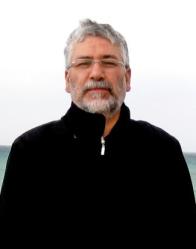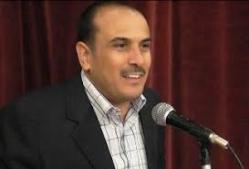2024
Content from the Brookings Doha Center is now archived. In September 2021, after 14 years of impactful partnership, Brookings and the Brookings Doha Center announced that they were ending their affiliation. The Brookings Doha Center is now the Middle East Council on Global Affairs, a separate public policy institution based in Qatar.
The Brookings Doha Center (BDC) held a panel discussion on October 20th, 2019 on U.S.-Iran relations, focusing on the Iran nuclear deal and current tensions between the two countries in the Gulf. The panel consisted of a group of distinguished scholars and experts, including: Abbas Maleki, professor on energy policy at Sharif University of Technology; Omar Ayasrah, a journalist and writer; and Suzanne Maloney, deputy director of the Foreign Policy program with the Brookings Institution. Ali Fathollah-Nejad, visiting fellow at the BDC, moderated the event, which was attended by members of Doha’s diplomatic, academic, and media communities.
Suzanne Maloney began the discussion by expressing her pessimism about the future of U.S.-Iran relations, which she said are prone to escalation based on past policies from both countries. She described the nuclear deal as the biggest diplomatic breakthrough between Washington and Tehran since 1981, adding that it was the result of years of intensive diplomatic work by Iran, the United States and European countries. Maloney said that the Trump administration has described the nuclear deal as being biased in Iran’s favor, and has made systematic efforts to unravel the deal, starting with the so-called “Muslim ban” and ending with 2018 decision to withdraw the United States from the deal. She noted that the decision to withdraw from the deal was made despite the efforts of several European powers to accommodate Trump’s position on the deal, adding that the decision reflected Trump’s interest in dominating headlines, rather than his understanding of the technicalities or strategic implications of Iran’s activities.
Maloney argued that U.S. sanctions against Iran have had a significant impact on the Iranian economy, but little impact on the U.S. or global economies. As such, the course of current tensions will be shaped not by a change in U.S. policy, but rather by the Iranian reaction to it. She noted that sanctions imposed by the Trump administration have been as effective as those imposed by Obama, even without much international support. However, she also described the rise in Gulf tensions that followed Trump’s May 2019 decision to use sanctions as a means to drive Iran’s oil exports down to zero. Maloney noted that, through the attacks Iran conducted, it showed that it was able to make good on the threat its leadership has articulated since the 1980s, namely: if Iran cannot export its oil, the rest of the region will not be safe to do so either. The escalation of U.S.-Iran tensions in the Gulf prompted France to lead a set of diplomatic initiatives and the U.S. government to search for ways out of the mess it created.
Abbas Maleki continued the discussion by noting that 40 years of mutual hostility between the United States and Iran have led to misconceptions and suspicions, which have limited policy options on both sides. However, he argued that hostility on the Iranian side is much less marked, recalling the sympathy shown by Iran toward the United States in the wake of the September 11th attacks and pointing to Iranians’ respect for American culture, arts, technology, and education. Maleki also said that the United States believes Iran has an expansionist agenda with respect to its ballistic missiles, nuclear program, and relations with Hezbollah, Hamas, the Syrian regime, China, and Russia. He added that Iran sees the United States as a revisionist power, whose opposition to Iran’s nuclear program is due to its opposition to intellectual and technological progress in Iran.
In discussing diplomacy between the two countries, Maleki said that Iran employs deterrence diplomacy, while the United States employs coercive diplomacy. He characterized U.S. diplomacy toward Iran as a “carrot-and-stick” approach, through which the former treats the latter as a hostile state that only responds to coercion. Maleki also posited that negotiations between the two countries can be explained by their desire to maintain the status quo, as they think the current situation is optimal: the United States has access to countries such as Saudi Arabia, Qatar, the United Arab Emirates, and Bahrain, while Iran has allies such as Hezbollah in Lebanon, the Iraqi government, the Syrian regime, and Hamas in Palestine. He concluded that, if the two countries were to focus on shared values and interests, this could perhaps open up direct communication channels and develop confidence, stressing the importance of policy research centers in moving forward U.S.-Iran relations.
Omar Ayasrah described the U.S.-Iran relationship as unusual, pointing out that Iran has been under siege for 40 years and yet has managed to achieve a geostrategic breakthrough. He speculated on whether this breakthrough was due to Iranian intelligence and diplomacy, or to the nature of the U.S. sanctions and policies toward Iran. Ayasrah argued that the nature of current U.S.-Iran relations has convinced Iranians that there will not be an all-out war, adding that both Iran and the United States are convinced that dialogue is the inevitable outcome, and that he expects compromises by both parties. He said that Gulf countries are divided in terms of how they approach Iran, with Saudi Arabia seeking to oppose Iran’s strategies while other countries, such as Oman and Qatar, are seeking mediation. Ayasrah also noted that Israel is an influential actor with respect to U.S.-Iran relations, arguing that the U.S. withdrawal from the nuclear deal was aligned with Israeli interests. He concluded by posing questions regarding the future of U.S. policy toward Iran, wondering whether the two parties would ever sit down at the negotiating table, and whether Iran would ever be recognized as a regional power.
The subsequent question and answer session focused on the impact of U.S. sanctions on Iran’s energy sector, the potential for escalation between Washington and Tehran, and policy issues. Maloney reiterated her pessimism with respect to the development of diplomatic relations between the two countries, noting that there is no trust at the leadership level. In response to a question about protests and Iran’s domestic policy, Maleki said that the Iranian government has concluded that it is better to allow citizens to protest and to deal with protesters patiently, pointing to recent protests tied to the education, industrial, and agricultural sectors. Ayasrah concluded the session by affirming that Iran has become a regional power but will likely remain opposed to the United States, adding that a friendly settlement between the two countries is unlikely.
Agenda
-
October 20
-
Panelists
 Abbas Maleki Professor on Energy Policy - Sharif University of Technology
Abbas Maleki Professor on Energy Policy - Sharif University of Technology Omar Ayasrah Journalist and Writer
Omar Ayasrah Journalist and Writer -
Moderator
-

